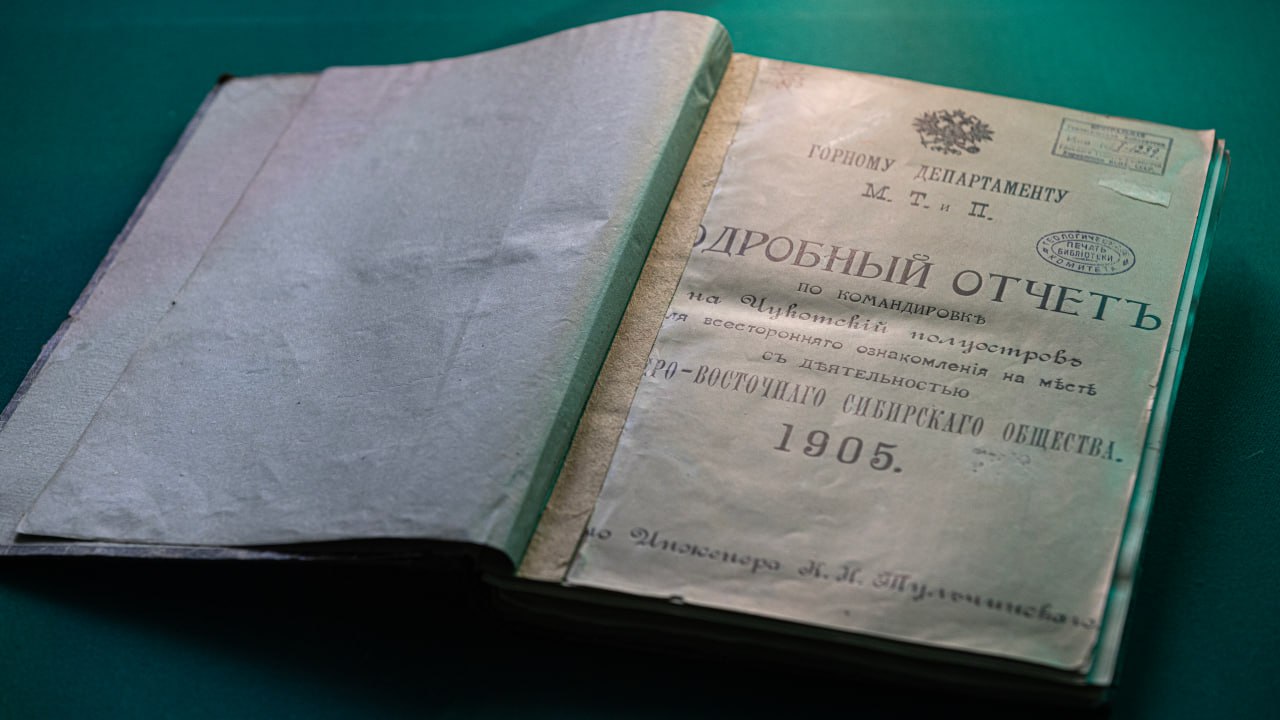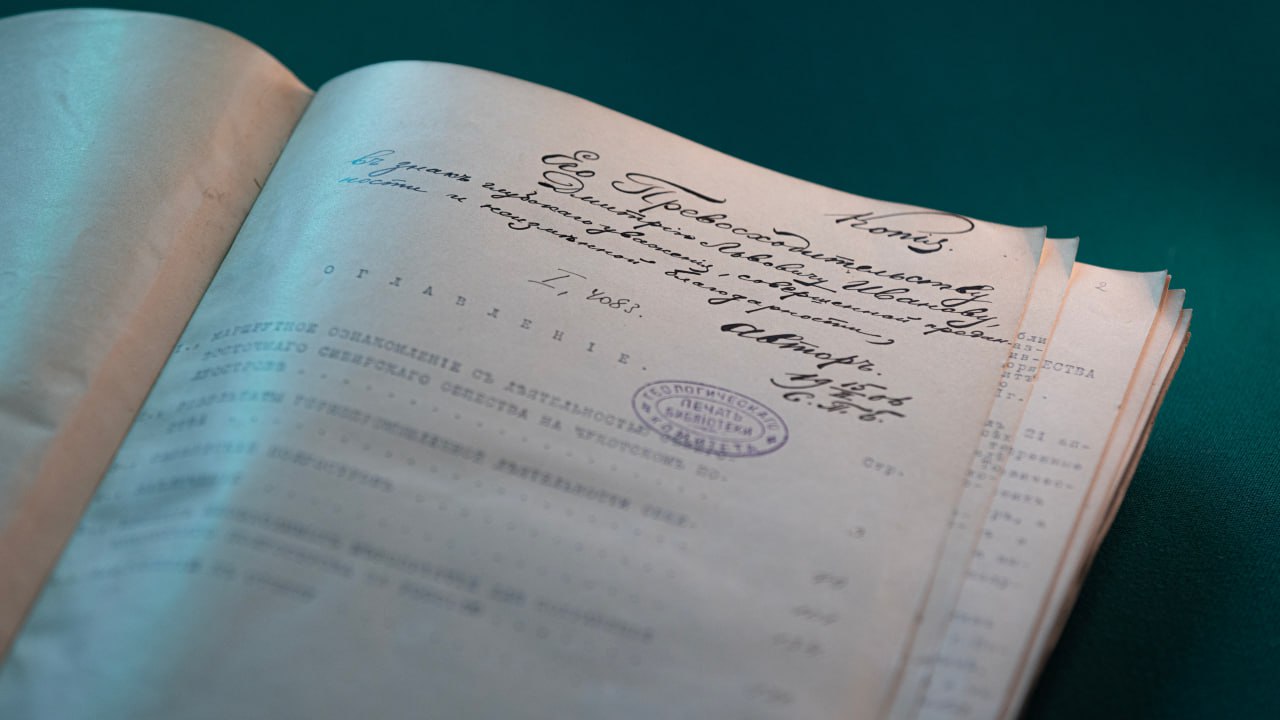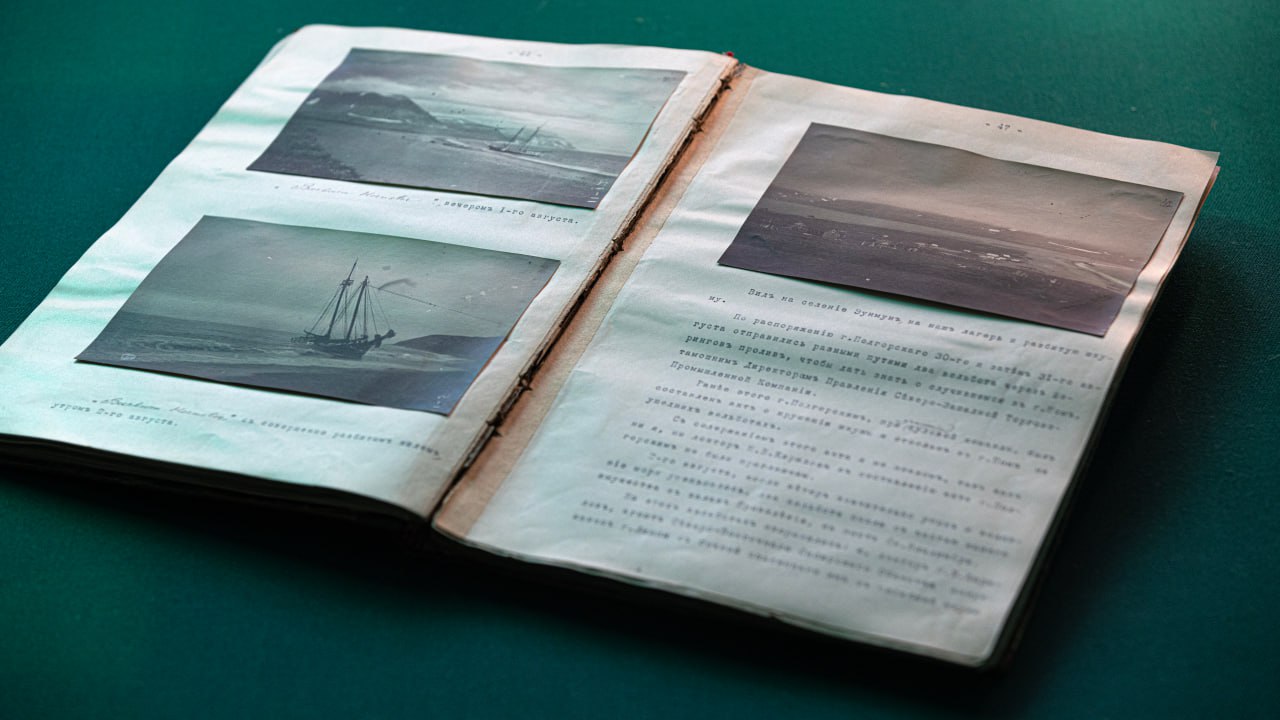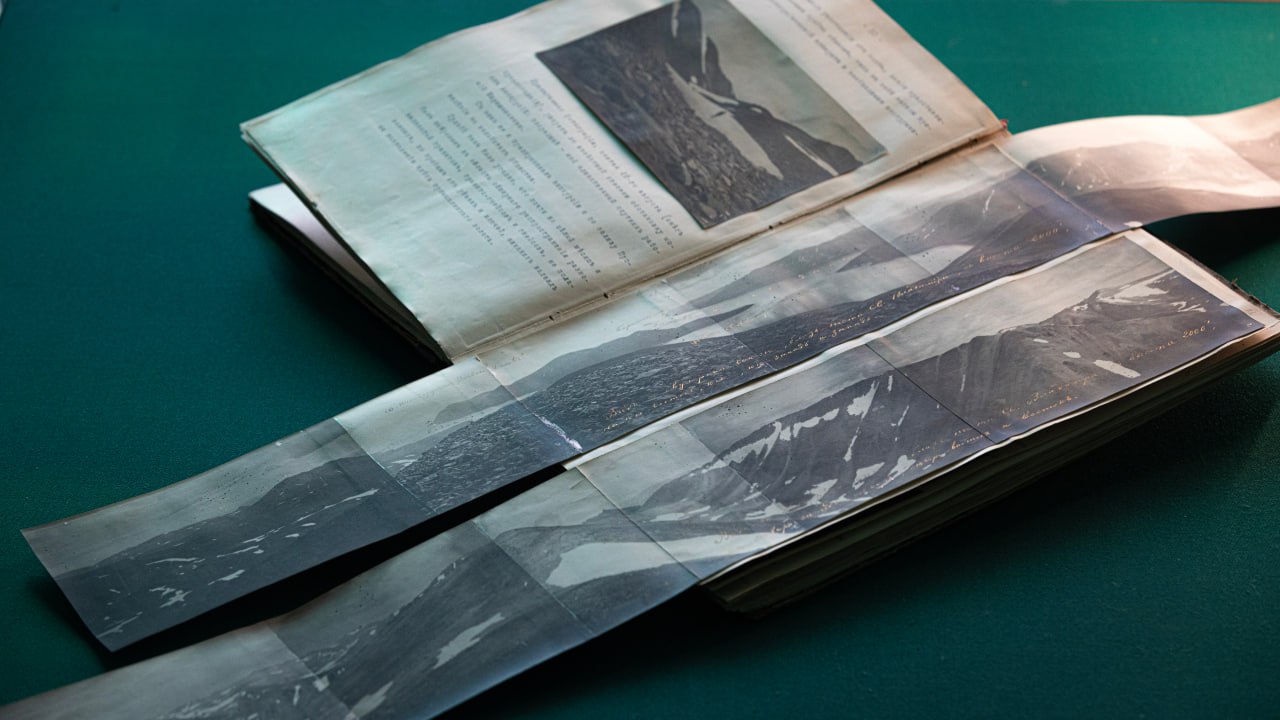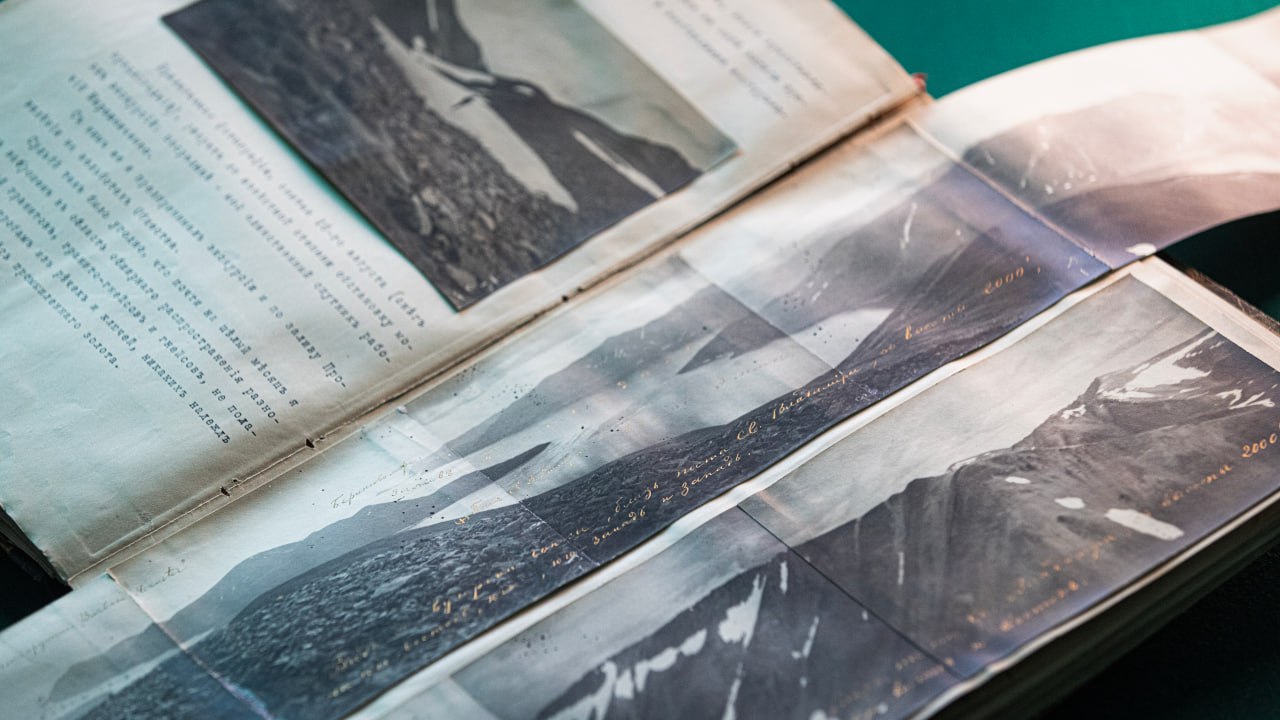Every geologist knows what a modern geological report on the implementation of a state task looks like. But what did it look like at the beginning of the last century?
The Russian Geological Library of the Karpinsky Institute holds many unique documents, including those of national importance. And we would like to tell you about one of them. We are talking about the original of a historically significant and very important report: “Detailed Report on a Business Trip to the Chukotka Peninsula,” written by mining engineer and State Councilor Konstantin Tulchinsky.
This was not an ordinary trip of a research geologist to study the mineral wealth of Chukotka. Having in hand a secret instruction from the HIS IMPERIAL MAJESTY Governor’s Office, Tulchinsky was sent by the Russian Government to the Chukotka Peninsula in 1905 not only to conduct geological surveys, but also to familiarize himself with the activities of the Northeast Siberian Society. And what came out of it - read below:
The state authorities had long been suspicious of the Society's activities. The key positions in the company were occupied by foreign entrepreneurs, and the Board was based in Seattle, the USA. The history of the enterprise began when an American geologist came to the conclusion that Chukotka was a geological continuation of Alaska, so there should be no less gold there. On this basis and for the purpose of gold mining, the government issued a license. However, instead of exploration and developing deposits, the society was engaged in completely different matters. The company cleverly understated figures in its reports, violated the terms of the concession and sank its own ships in order to obtain insurance payments. In fact, it was doing everything but what it was supposed to be doing.
Once in Chukotka, Tulchinsky saw with his own eyes that the Society was only a cover for establishing a permanent American settlement on the Chukotka Peninsula and the subsequent Americanization of these lands. At that time, the Americans acted quite sophisticatedly, carried out propaganda activities among the local population, telling them about Russia’s defeat in the war with Japan and that the lands of the Russian periphery had already been given to the Japanese. When Tulchinsky proposed to use his knowledge and experience as a geologist in gold exploration, he received a categorical refusal - “There is no gold there!”, which could not but surprise, given the original purpose of creating the enterprise.
As for the report on the activities of the Northeast Siberian Society, Tulchinsky described in it in detail the real situation, or rather all the violations committed, bordering on the destruction of state sovereignty and outright theft of the region’s natural resources. Along with exploration and extraction of minerals, the Company was allowed to engage in commercial activities both on the peninsula and in the adjacent sea waters. Having virtually abandoned mining, the company turned its attention to trading and inebriating the local population. In exchange for whalebone and fur, the Chukchi were offered the American “Old Whiskey” and diluted alcohol.
Tulchinsky faced serious difficulties during his inspection. Obstacles were put in his way, he wrote about corruption, how he managed to avoid death on board a sinking schooner, the blatant lawlessness of the Americans on the peninsula and the barbaric whaling.
As a general conclusion of his trip, Tulchinsky writes about the danger of losing the peninsula in the very near future: “Leaving the Chukotka Peninsula in further neglect means leaving it for future generations... of Americans or, perhaps, even Japanese.”
in 1909, based on the report of Konstantin Tulchinsky, the original of which is kept in our library, the Council of Ministers adopted a decision “On strengthening government supervision on the Chukotka Peninsula.” Certain efforts were made - the licence was withdrawn, the society was dispersed, but it was still far from restoring order in Chukotka.
That's how geologists used to be – defenders of state interests and true patriots. As the newspaper Voice of the Urals wrote in 1912, Tulchinsky was a geologist who “managed, along with the diligence of an official, to keep the lively soul of an impartial scientist.”
